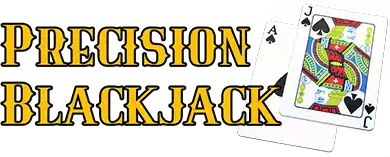Why You’re Losing Money and How to Fix It
Why You’re Losing Money and How to Fix It
The Excitement of Blackjack
There’s something undeniably thrilling about sitting down at a blackjack table. The bright lights of the casino, the anticipation in the air, and the satisfying clink of chips as you place your bet—it all comes together to create an experience like no other. But for many beginners, that excitement quickly turns to frustration as they watch their money slip away hand after hand. What’s going wrong? Blackjack seems simple enough, so why aren’t you winning?
If this sounds familiar, don’t worry—you’re not alone. Many new players fall into the same traps that cost them money. But the good news is that these pitfalls are easy to avoid once you understand the basics of the game and the common mistakes that beginners make. In this article, we’ll explore why you might be losing money at blackjack and how you can turn things around.

The Basics of Blackjack: A Quick Refresher
Before we dive into why you’re losing money, let’s make sure we’re clear on the basics of blackjack.
The Objective
The goal of blackjack is to beat the dealer by having a hand value closer to 21 than the dealer’s hand, without going over 21. If your hand exceeds 21, you bust and lose the round. Simple enough, right?
Card Values
- Number cards (2-10): Worth their face value.
- Face cards (Jack, Queen, King): Worth 10 points each.
- Aces: Worth either 1 point or 11 points, depending on what benefits your hand the most.
Gameplay
- Place Your Bets: Start by placing your bet in the designated area.
- Dealing the Cards: Each player and the dealer are dealt two cards. Players’ cards are face up, while the dealer has one card face up and one face down.
- Player Decisions: You can choose to hit (take another card), stand (keep your current hand), double down (double your bet and take one more card), or split (if you have two cards of the same value, you can split them into two hands).
- Dealer’s Turn: The dealer reveals their face-down card and must hit until they reach at least 17. If the dealer busts, all remaining players win.
- Winning: You win if your hand is closer to 21 than the dealer’s without going over.

Why You’re Losing Money
Now that we’ve covered the basics, let’s get to the heart of the matter: why you’re losing money. Here are some of the most common reasons.
- Not Understanding Basic Strategy
Blackjack is a game of both luck and skill, and while you can’t control the cards you’re dealt, you can control how you play them. Basic strategy is a set of rules that tells you the best move to make in every possible situation, based on your hand and the dealer’s upcard. If you’re not following basic strategy, you’re likely making costly mistakes, like hitting when you should stand or standing when you should hit.
Basic strategy minimizes the house edge and gives you the best possible chance of winning. Without it, you’re essentially playing blind, and the casino’s advantage increases significantly.
- Playing on Instinct Instead of Strategy
It’s easy to fall into the trap of playing blackjack based on intuition or gut feelings. Maybe you’ve been on a losing streak and feel like you’re “due” for a win, or you’ve noticed a pattern in the dealer’s cards and think you can predict the outcome. The problem is that blackjack is a game of probabilities, not feelings. Playing on instinct often leads to poor decisions and unnecessary losses.
For example, the gambler’s fallacy is a common pitfall. This is the belief that if something hasn’t happened for a while, it’s more likely to happen soon—like thinking that a string of losses means a win is just around the corner. In reality, each hand of blackjack is independent of the last, and the odds don’t change based on what happened previously.
- Ignoring the Dealer’s Upcard
One of the most critical aspects of basic strategy is paying attention to the dealer’s upcard. This card gives you valuable information about the dealer’s potential hand and should heavily influence your decisions.
For instance, if the dealer’s upcard is a 2 through 6, they’re more likely to bust, so you might choose to stand on a lower total, allowing the dealer to bust and hand you the win. If the dealer’s upcard is a 7 through Ace, they have a stronger hand, so you may need to be more aggressive by hitting or doubling down.
Ignoring the dealer’s upcard and focusing solely on your own hand is a common mistake that can cost you money.
- Mismanaging Your Bankroll
Bankroll management is crucial in blackjack, yet it’s often overlooked by beginners. Your bankroll is the amount of money you’ve set aside to play with, and managing it properly can mean the difference between a fun night at the casino and a financial disaster.
Common bankroll management mistakes include betting too much on a single hand, chasing losses by increasing your bets, and not setting a budget. If you lose your entire bankroll early in the night, you won’t have a chance to recover when the odds swing back in your favor.

How to Fix It: Start Winning More
Now that we’ve identified the common mistakes that might be costing you money, let’s talk about how to fix them and start winning more.
- Learn and Stick to Basic Strategy
The first step to improving your blackjack game is to learn basic strategy and stick to it. Basic strategy charts are widely available online and provide a clear, easy-to-follow guide on the best move to make in any situation. Memorize these charts or keep a copy handy when you play, and resist the urge to deviate from the strategy, even if it feels counterintuitive.
By consistently making the mathematically correct decisions, you’ll reduce the house edge and increase your chances of winning over time.
- Practice Makes Perfect
Like any skill, practice is essential for mastering blackjack. The more you play, the more comfortable you’ll become with basic strategy and the flow of the game. Consider practicing online or with friends to sharpen your skills before heading to the casino. This will help you make better decisions and play more confidently when real money is on the line.
- Pay Attention to the Dealer’s Upcard
Make it a habit to consider the dealer’s upcard before making any decision. Use it as a guide to determine whether you should hit, stand, double down, or split. By factoring in the dealer’s potential hand, you’ll make smarter decisions that align with basic strategy and improve your overall performance.
- Manage Your Bankroll Wisely
To avoid running out of money too quickly, set a budget for how much you’re willing to spend on blackjack and stick to it. A good rule of thumb is to bet no more than 1-5% of your total bankroll on each hand. This conservative approach helps you weather losing streaks and stay in the game longer, increasing your chances of hitting a winning streak.
Additionally, set win and loss limits before you start playing. Decide ahead of time how much you’re willing to lose before you walk away and how much you want to win before you cash out. This discipline will prevent you from chasing losses or getting carried away by a winning streak.
Conclusion: Turn the Odds in Your Favor
Blackjack is an exciting game that offers the potential for big wins, but only if you approach it with the right strategy and mindset. By understanding why you’re losing money and making a few key adjustments, you can turn the odds in your favor and start enjoying the game more.
Remember, learning and sticking to basic strategy, practicing regularly, paying attention to the dealer’s upcard, and managing your bankroll are the keys to success in blackjack. With these tools in your arsenal, you’ll be better equipped to take on the dealer and walk away a winner.
So, the next time you sit down at the blackjack table, you’ll do so with confidence, knowing that you’ve taken the steps to improve your game and increase your chances of winning. Good luck, and may the cards be in your favor!

